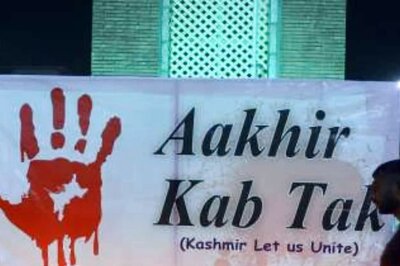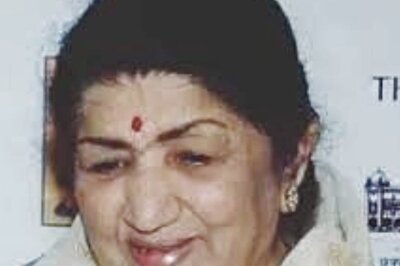
views
New Delhi: Atal Bihari Vajpayee has been regarded as the one who heralded India’s modern-day foreign policy to where it is now. Ties with the US, China reached a historic point during his term as PM. One of his biggest contributions, however, was his talks with Pakistan. He has been invoked by his successors, be it Manmohan Singh or Narendra Modi.
Singh, during Sharm-el-Sheikh, had spoken of Vajpayee’s path to peace. Prime Minister Narendra Modi, in the four years of his term, has stood by the hard, muscular policy against Pakistan but has invoked Vajpayee several times.
While it was under his leadership that India conducted five nuclear tests in 1998, it was also Vajpayee’s dream of having peace with Pakistan, one which he had carried with him as he moved from the position of Foreign Minister to Prime Minister of India. Vajpayee’s first move in that regard was in 1999 when he took a bus to Lahore. He visited Minar-e-Pakistan and stated that a stable Pakistan was on top of India’s agenda and was imperative for the country’s interest.
It was a full scale diplomatic push from India’s side, something that both sides had not seen. It was Vajpayee’s grand plan of not just maintaining peace with Pakistan but also resolving the Kashmir issue. The result of it was the Lahore Declaration.
With a revered commitment to dialogue, then Pakistan Prime Minister Nawaz Sharif and Vajpayee pledged to expand trade ties and work towards a denuclearised region. The declaration, however, fell through as the Kargil War broke out later that year.
Even now, General Pervez Musharraf is considered the strategic brain behind the attack, something that reportedly took Nawaz by surprise too. Musharraf went on to pull off one of the biggest coups that the country had seen and ousted Nawaz.
Vajpayee, however, didn’t stop pushing his peace agenda. Though the Lahore Declaration fell sooner rather than later, after much diplomatic efforts (including a push from then UN General Secretary Kofi Annan), the stage was set for the Agra Summit in 2001.
History remembers the Agra Summit as one of the greatest missed opportunities of India-Pakistan relations. Former Pakistan Foreign Minister Khurshid Mahmud Kasuri in his book ‘Neither a Hawk nor a Dove’ wrote that the “solution to Kashmir was in the grasp of both governments”.
Then Pakistan President Pervez Musharraf had proposed what was called the ‘Four-point solution’ to Kashmir. According to different accounts, the solution was, in principle, acceptable to Vajpayee but the deal fell through hours before the signing ceremony.
Whether it was the oppositional stance of LK Advani and separatist leader Syed Ali Shah Geelani that derailed the Summit or whether it was Vajpayee’s mistrust of Musharraf, since the Kargil War took place just months after his Lahore Bus Yatra, the two-day Agra Summit ended in failure and Musharraf flew back to Islamabad without an agreement being signed.
Former J&K Chief Minister Farooq Abdullah had told a newspaper in 2015 that Pakistan would accept the Vajpayee formula today. “Today, they [Pakistanis] are ready to accept that [Mr. Vajpayee’s offer] with one provision — that there should be autonomy here and they [Pakistani government] will do the same there,” Abdullah had told The Hindu. Recently, former ISI chief Asad Durrani too said, in his book The Spy Chronicles (that he co-authored with former RAW chief AS Dulat) that Pakistan now might accept the Vajpayee formula.




















Comments
0 comment